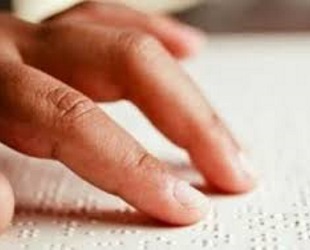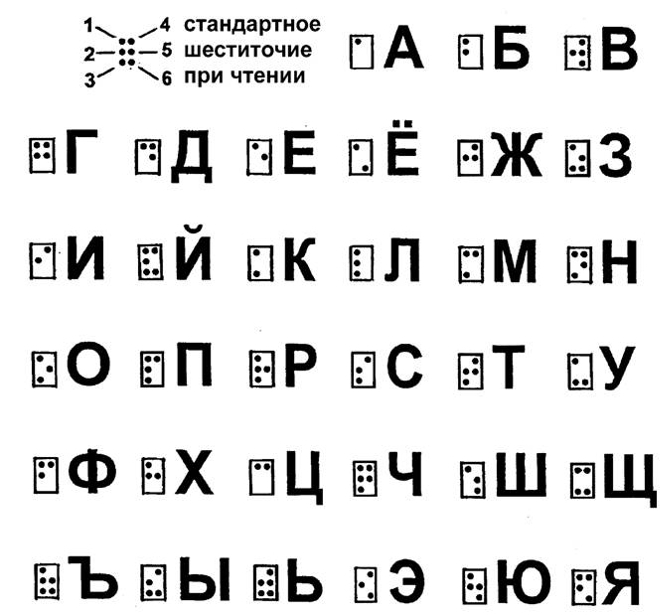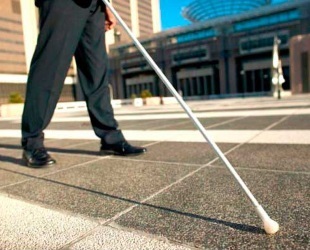
The number of visual disorders in adults and children is increasing every year.
The reason for this is a large visual load due to general computerization and the lack of people's basic knowledge of visual hygiene.
The level of the visually impaired population is approximately 18-20 percent per 1000 people.
The most common diseases are glaucoma, lens pathology, degenerative myopia, diseases of the vascular tract of the eyes, macular degeneration of the retina, optic nerve diseases, as well as eye injuries. A person with visual impairments experiences significant difficulties in life, school, work.
It is difficult for him to navigate without help: to find the right address, cross the road, determine the route number of the transport, read information from the chalkboard, stand, projector screen, work at the computer, disassemble small print, read, write, and so on.
- 1. Establishment of disability
- 2. Medical and social expertise
- 3. How much do they pay?
- 4. Conclusion
Establishing a disability
In difficult situations, a person can not service himself at home: cook, dress, visit the toilet, take a bath, just leave the house.he needs either an assistant, or in special equipment with sound signals, or in a guide dog.
With persistent impaired vision, disability is established. For this, three factors must coincide:

- vision impairment;
- restriction of vital functions;
- the need for social protection, including rehabilitation.
Disability determination
Disability establishes the institution of medical and social expertise( ITU) after conducting the survey on the basis of the citizen's personal application, directions and additional documents.
Based on the results of the work of the ITU Commission, a certificate is issued - the only proof of the status of a disabled person whose form is approved and can not be arbitrarily changed, or a written refusal in recognition as an invalid.
For the survey, a person must personally appear at the ITU.If he is under 14 years old, it is necessary to accompany the legal representative.
Disability without re-examination period
Usually the invalid must undergo a reassessment: when establishing 1 group every 2 years, with the establishment of 2 and 3 groups - once a year. Children with disabilities are re-examined once every 2 years or on reaching adulthood.
Vision impairment without re-examination is established in the following cases:
- of the nervous system disease with persistent chronic or progressive visual impairment;
- complete bilateral reversible blindness without correction and treatment effectiveness;
- is deaf to the full.
Criteria for determining groups of vision impairment
The disability group is established depending on the degree of visual impairment. For children under 18 years of age, the category "disabled child" is established for visual impairments ranging from 40 to 100%.
| Group | Range of visual impairment |
| 1 | 90-100% |
| 2 | 70-80% |
| 3 | 40-60% |
Medical and social expertise
Medical and social expertise or ITU is a public body whose main activity is the examination for the purpose of establishing or removing a disabilityand the development of rehabilitation programs for people with disabilities.
Obtaining referral for medical and social expertise
A citizen's form is received in:
- polyclinic( if forms are provided there);
- body of social protection;
- pension fund( rarely).
The form is filled in the polyclinic that serves the patient. The direction must be filled in completely, all entries are backed up by personal signatures and doctor's seals, and the completed form is signed with the seal seal by the chief doctor.
The referral is issued only after all necessary measures to restore the patient's health, treatment, rehabilitation and habilitation activities, when they did not give such a result, as a result of which the patient's vision would be restored for a normal lifestyle.

Passage of medical and social expertise
A citizen is at the ITU with a package of documents from the medical organization that sent him for examination( usually a district or city polyclinic).
The package includes the actual direction filled by the doctors of the referring medical institution, for medical and social expertise, copies of additional studies( for example, fluorescent angiography, ophthalmography, optical coherence tomography, electroretinography, oculogram, tonometry, tonography and others - depending on the main and accompanying diagnoses).
An excerpt from the patient's outpatient card is also certified by the head physician of the polyclinic or another referring medical institution. From the extract should follow, what diagnosis is established in the district clinic, what concomitant diagnoses are put by other doctors.
Before going to the ITU, a person undergoes a medical commission( except for an ophthalmologist, which goes without saying, usually it includes an otolaryngologist, a surgeon, a neurologist, a gynecologist for women, a urologist for men, and the last one a therapist)a series of analyzes and does some research( general urine analysis, a general blood test and a blood test for glucose level, a cardiogram, a fluorogram).
In the case of unfavorable results of analyzes and studies, the therapist or ophthalmologist is referred to a cardiologist, phthisiatrist, endocrinologist, phlebologist or other specialist. The directing ophthalmologist in the direction notes the alleged degree of restriction in study or work, self-service, orientation and expresses them in percentages.
It also indicates the existence of a previously established disability and the fact - if there was - an early referral to the ITU, even if the appeal last time ended in refusal to establish disability.
The package includes, in the presence of documents on the employment of a person: a copy of the work record book, a labor agreement( if the work book is not established), certificates of education in the educational organization, registration certificates as an entrepreneur or founder of a commercial organization, and others.
ITU specialists study the documents provided to them, assess the general condition of the person being sent for examination, the degree of their household, social, labor limitations. They have no right to demand any other evidence of human visual impairment: additional research, examination of eyesight in the medical organization indicated by them, and so on.
ITU specialists not only recognize a person as an invalid of a certain category, but also determine the degree of restriction in self-service, training, work, rehabilitation. Together with the certificate, the disabled person receives an individual rehabilitation program filled in accordance with the needs.
It indicates the need for training Braille, partially or fully received from the budget of special equipment with audio signals( smartphones, laptops), in an emergency spa, hardware, laser treatment, in the organization of targeted social assistance to the disabled at home, in the acquisitionpreferential or free guide dogs and others.
Below is the Braille font:

Challenging ITU decisions
If specialists refuse to recognize a person as disabled for the first time or repeatedly or have established a disability inappropriate degree of group health restriction, he has the right to receive a written refusal and appeal to a higher authority of the ITU.
There are three levels of such expertise:
- 1 level - ITU bureau in the district or in the city( if the city is small and not administratively divided into districts);
- 2nd level - the main( city or regional) bureau;
- Level 3 - the federal bureau.
The complaint needs to be stated when and to which ITU specialists were applying for disability determination, what are the grounds for recognizing the person applying for an invalid, what are the reasons for the refusal from the ITU experts, what are the claims of the ITU that applied to the staff and what are its requirements.
If at all levels a refusal is received, it can be appealed in a judicial procedure.
If in the course of the survey, ITU specialists were required to pay for additional bureau services, research, analysis and examination, then on these facts the patient has the right to file a complaint with the prosecutor's office, the Ministry of Health or the ITU higher bureau. The actions of ITU specialists are conducted at all levels free of charge from the budget.
How to apply for a vision impairment if ITU specialists refused?

It is impossible to register a disability for any disease, including eye diseases, bypassing ITU.
If there is a cancellation of the decision of the ITU of the first level by a higher-level bureau or court, it is necessary to re-attend the re-examination of the establishment of a disability or a change of its group to the same bureau and provide a document on the cancellation of the original decision.
How much do they pay?
A disabled person or his representative for granting a social pension to them applies to the Pension Fund of the Russian Federation - to the territorial body that corresponds to their place of residence or stay.
They file an application( a sample and a form of filling out are given to them as a sample at the place of the territorial body and fixed on the Pension Fund website).Together with the application, a passport and a certificate stating that the applicant is indeed an invalid are submitted. The passport and the certificate are returned to the applicant, and copies remain in the Pension Fund.
The application and documents can also be submitted to the multifunctional center or sent by post. It is allowed to apply through the Internet portal of public services.
The amount of the pension paid depends on the disability group and on whether the pensioner is disabled since childhood or became disabled in adulthood and is:
- for disabled persons of the 3rd group - 4279.14 rubles per month.
- for disabled 2 groups - 5034.25 rubles.
- for disabled people since childhood 2 groups and disabled 1 group - 10068.53 rubles.
- for invalids since the childhood of 1 group and children-invalids - 12082,06 rubles.
The pension is delivered to the address or transferred to the bank details indicated by the recipient.
Conclusion
- Disability is established as a result of a survey at the ITU Bureau after a full examination and treatment course based on a medical report from the clinic towards the ITU.
- The decision of the ITU can be challenged in court.
- To receive a pension, a citizen applies to the Pension Fund with a passport, application and ITU certificate.
- The amount of pension payments depends on the disability group.
